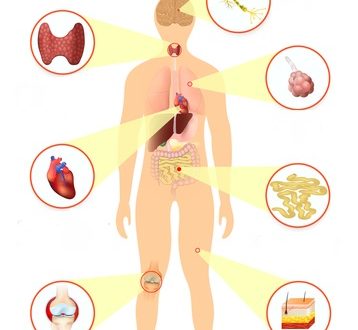Multiple Sclerosis and sunshine

Multiple Sclerosis and Sunshine: Multiple Sclerosis (MS) is an immune -mediated inflammatory disease that attacks myelinated axons in the central nervous system, destroying the myelin and the axon in variable degrees and producing significant physical disability within 20-25 years in more than 30% of patients. The hallmark of MS is symptomatic episodes that occur months or years apart and affect different anatomic locations.
A recent study just finished and the results are a bit interesting, to say the least. In a new report in the journal Neurology, researchers found that there is a direct and positive correlation between development of MS in adolescence and exposure to sunlight during the early years! It has been speculated for awhile now that its the Vitamin D that results from exposure to sunlight that seems to lessen the chances of developing MS but this study shows that its not just Vitamin D3 mediated effects but other as of yet unknown positive benefits of sunlight that is delaying or hindering the development of MS. This association between sun exposure and reduced MS risk appears to be present all throughout life and not just during childhood or adolescence. Sun exposure affects overall chances of developing MS, and its not just thru increased Vitamin D synthesis.
After controlling for variables such as number of sunburns during childhood, amount of time spent outside during childhood, use of sunscreen, place of residence, UVB exposure (ambient exposure for a given location), natural color of skin and hair, body mass index (as a measure of overall health), smoking status (past and present), and if or not supplemented with Vitamin D3, and found that there is a 36-45 % reduction in the incidence of MS across all age groups. For specific age groups, greater UVB exposure resulted in an even risk reduction for developing MS: 55%!
As of right now, there is unfortunately no cure for MS, not even any good treatments that conventional medicine has to offer. Biomedical treatments for MS can come with significant side effects, and may not always be effective. Chinese medicine, including both acupuncture and herbs, offers a valuable alternative approach to treating MS. This form of medicine considers patients and diseases as individual cases with potentially varied causes. As anecdotal evidence attests, Chinese medicine is well equipped to address the complex and varied presentations of the disease—without accompanying side effects. Cure remains elusive for now, but acupuncture and herbal medicine help to control it in a positive manner.
Recommended Posts

Unlocking Relief: How Acupuncture Can Be Your Ally in Managing Chronic Conditions such as Pain, Anxiety, Low Energy, Insomnia, and so much more
May 12, 2025

Acupuncture for Stress and Anxiety
March 8, 2025


